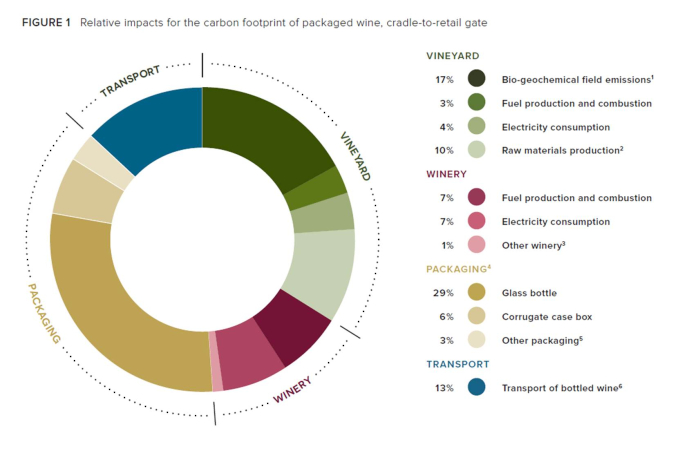Within the life cycle of producing a bottle of wine, the most significant impact on carbon footprint is during the packging stage, specifically from glass production.
Glass bottles are energy-intensive to produce and add significant weight to the product, resulting in increased transportation costs.
Enoteca Wineries and Resorts is introducing lightweight bottles, starting with select cuvées bottled in 2024.
The choice to switch to lightweight bottles means a reduction in the use of raw materials, specifically less sand, a non-renewable resource and one of the most extracted materials in the world.
Secondly, it lowers the weight based freight and transportation charges. Transportation enterprises can fit more bottles in their cargo and use less fuel for shipping to both wholesale and direct sales customers.
In addition, the lighter bottles decrease the risk of injury to the employees handling the cases of wine.
 Source: California Sustainable Winegrowing Alliance’s 2011 assessment of California Wine’s Carbon Footprint
Source: California Sustainable Winegrowing Alliance’s 2011 assessment of California Wine’s Carbon Footprint
LaStella and Le Vieux Pin will be using lightweight bottles for the following cuvées bottled in 2024: Vivace, Vaila, Cuvée Violette, Ava, Syrah Classique, Équinoxe Syrah, and the Syrah Cuvée Terroirs.
This change in packaging means a total reduction of weight of more than 4 tons, precisely 4237 kg for 2024.
Our goal is to switch to lightweight bottles for all cuvées in the following years.
Our consumers are ready for a change — so are we!